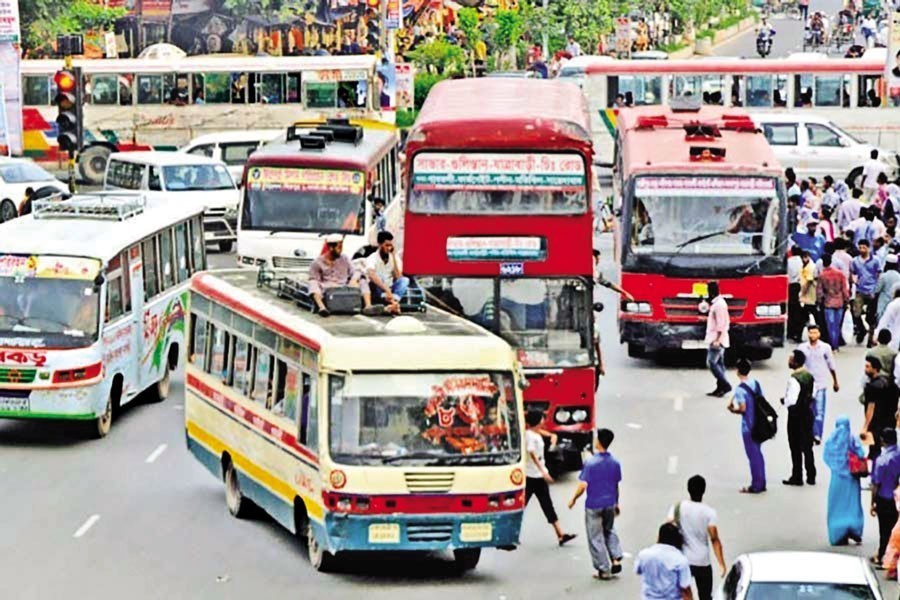The satisfaction of living in a growing city with emerging middle class culture has been largely eroded from Dhaka over the years.
A regret of this order may yet be a sign of old age. It is nostalgia which might have overwhelmed the minds of generations that witnessed certain transformation of the capital city between the 1960s and 1980s.
Dhaka in those decades was a far more attractive and tranquil city that encouraged people to enjoy living a modern life. Dining and watching television drama together by full family, reading books and newspapers, meeting friends and relatives regularly and visiting learning and recreational centres were some of the key features of their urban life.
In Dhaka, adda (rendezvous) was a pastime, passion, means of human communications, platform for sharing ideas and exchange of views, reflection of social thinking, proof of being alive and what not.
The city has these days become too restless to absorb the days and nights of each of the grownup citizens. Time does fly fast like sudden disappearance of near-and-dear ones from the scene. Social media has turned into one of the mirrors, which, nevertheless, is devoid of warmth of meeting humans.
So, the question remains if this city life is still so exciting to the younger people, who can't compare the seniors' experience with theirs. There are issues that affect all, however.
The tag of having one of the worst air qualities in the world no longer troubles the city authorities. A highly dense city in the most densely populated country doesn't help metropolitan residents to understand benefits of community life. Traffic congestion can't be used as an excuse any more for reaching destination late. Presence of hundreds of beggars on the streets and market compound fails to defeat tall talks of development. Criticism hardly stops grabbing canals and public land and building illegal structures on the banks of Buringanga, Turag, Balu and Shitalakkhya.
Tangible progress can't be ignored either. Innumerable concrete structures have been built to accommodate residents, offices, commercial centres, shops, hospitals, schools and universities.
At the same time, commuters can't overlook dust and waste piles, dirty walls, and slow but reckless movement of vehicles in almost all parts of the mega-city.
Nowadays, the Dhaka dwellers mostly live in their respective localities and mainly visit workplaces and shopping centres. Its overall atmosphere in no way is pleasant.
For poor conditions and indiscipline observed in public places, civic behaviour can of course be blamed. The commoners are not, however, responsible for providing civic amenities and waste management.
Thus, which is more critical - culture of urban people or improved city governance - may prove to be an endless debate like 'the chicken or the egg first'.
Over-enthusiastic groups pin their hopes of smooth commuting only on one or two means like flyovers and under-construction elevated expressways. Whether the fast-changing appearance of the city will actually be transformed into a lasting picture is unknown to the current generation.
The decline in Dhaka's environment and the loss of joys of living are rooted in the past. Never in the last few decades had it been a clean city though not so polluted like today. Influential Dhakaites including public officials wanted to become superior to each other, instead of pursuing enriched collective interest and making a liveable city.
In a 1993-94 drama serial Kothao Keo Nei (Nobody is there anywhere) by popular playwright Humayun Ahmed, an apparently rude, expensive lawyer cited his struggle in city life as a cause for his tendency to insult people for money. He had to starve for days for want of money. "At one stage I went out and approached a family to give me some food but they declined…They couldn't believe me. People of this city offer food to beggars, not to a gentleman," he said.
Since then, the city's men and women have been further affected by rising consumerism, but they are yet to be supported by programmes to survive any crisis and flourish sustainably.


